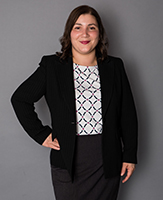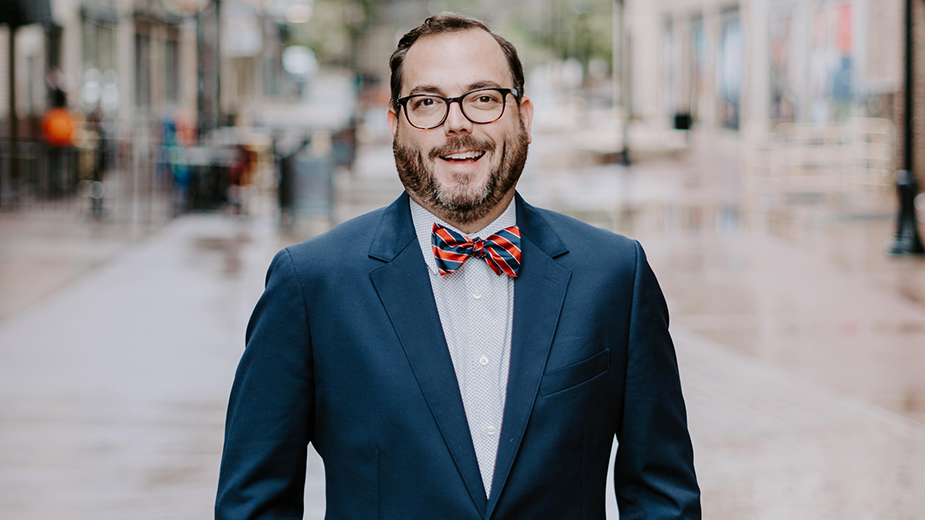YOUNGSTOWN, Ohio – OCCHA has improved the quality of life for the Hispanic and Latino population here for half a century through the ebbs and flows of the community.
In 1972, OCCHA, the Organización Cívica y Cultural Hispana America, was founded so it could serve the population in the Mahoning Valley. The rise of the steel industry can be linked to the explosive growth of the Latino community here, particularly Puerto Ricans. According to the Mahoning Valley Historical Society, the major influx of Puerto Ricans occurred between the years of 1942 and 1960 because of the appeal of the burgeoning steel industry.
OCCHA executive director Angelica Diaz describes the Mahoning Valley as “attractive” to newcomers, especially when they look at its low cost of living.
“Latinos have been coming to this area for many years. We’ve got the people that are settled. We’ve got people that have left and come back. The area is very attractive to people,” she says. “They’re coming here and many times they need help looking for resources. OCCHA is their one-stop shop.”

OCCHA provides social, economic, cultural and educational programs as well as food, employment and translation services. The nonprofit works to improve the quality of life for Hispanics and others.
It’s important for the Hispanic and Latino community to have an organization and services that caters specifically to them, Diaz says. Having a safe space makes them feel at ease, especially when they face barriers elsewhere.
“People feel comfortable in a place where they feel they’re welcome. Many times, [Hispanic and Latino] people have a language barrier. And this language barrier is very difficult because everywhere they go, they might not get the correct information. They might not understand. They might not comprehend,” Diaz says.
But the challenges are not limited to language and include financial and cultural barriers. “This can frustrate many people and it doesn’t help us to be productive citizens,” she says.
OCCHA helps its members overcome language barriers by providing translation and interpretation. The agency provides technical help for communication needs such as filling out forms and phone calls.
It also offers English as a second language classes through a partnership with Eastern Gateway Community College. Thirty students completed the class last year, Diaz reports.
“The purpose of these classes is to make sure that the people here that have a language barrier can fully comprehend the English language so they can be good citizens, Diaz says. “Language and having that understanding is a big part of that.”
In addition to English classes, OCCHA provides access to General Educational Development (GED) tests, a computer lab, information workshops and cultural activities under its education services for adults. The agency also provides employment services, such as workshops on job skills and preparation and job-search help. For children, it offers a summer camp that hosts dozens of kids annually.
Diaz says 52 campers attended five field trips this summer. She says the focus of the camp is for the child to learn and embrace his or her differences as a member of the Hispanic and Latino community.
“We’re very diverse within the Latino culture. Some of us come from different areas that speak Spanish: We come from Puerto Rico. We come from Mexico, Honduras, Guatemala. So we’re all different,” Diaz says. “We embrace those differences. We live in a place where maybe our neighbor doesn’t look like us, or our coworkers, but we embrace those differences.”
Beyond social and education serv-ices, OCCHA provides emergency services like food and clothing at no cost to eligible members. Diaz says that members can come to the center for food and clothing once or twice a month if they need to.
OCCHA Board President and Youngstown City Councilman Mike Ray says OCCHA is seeing an increase in demand for its services. While its focus is on the Hispanic and Latino community, the agency also provides services to others in the multicultural community, he says.
Ray credits the increase to the growing Hispanic and Latino population. “It is growing and there’s folks from different parts, too. We tend to say Spanish speaking because it’s folks from so many different backgrounds,” he says. “We have people who are coming over from Puerto Rico and Central America. It’s a variety of folks that come into our community for a variety of different reasons.”
Ray’s great-grandparents immigrated to the Youngstown area from Mexico to work in a steel mill, he says. They sponsored other family members and friends to come to the United States for work. He believes that OCCHA plays a significant role in helping people like his great-grandparents to settle.
OCCHA is working on a strategic plan, which Diaz and Ray say is an effort to adapt to a changing society and evolving needs. Ray has been with OCCHA for nearly a decade and has seen the needs of the community change over time and watched OCCHA evolve in response. He says the main change in need is simple — there’s more of it.
“We have to make sure we are adapting and providing services that are needed in the community. And that we continue to provide services that make our clients successful,” Ray says.
OCCHA has put an emphasis on helping Hispanic and Latino young adults continue their education, Diaz says. The organization gives out annual scholarships and awarded $10,000 to 14 students in 2020.
“We want to help our young people. We want to empower our Latino students. We’re all for education and bettering themselves,” she says.
Halfway through 2022, OCCHA has served 1,963 people, according to Diaz. She wants to continue to help the community as it grows and evolves. The discussion around mental health needs led the organization to start a new program titled the Mental Health Navigator Project. Its purpose is to make mental health resources available to the Spanish-speaking community.
“We want to make sure that the Hispanic community is aware of all the resources available to them. So, they come to us if they need some type of help and we’ll do the referral for them,” Diaz says. “OCCHA has been a gem in the community for a very long time. And we continue to be a gem because we’re that support system for the Latino and multicultural community.”
OCCHA’s 50th Anniversary Gala, the organization’s biggest annual fundraiser, will take place at 6 p.m. Nov. 4 at the Maronite Center. Tickets are $65 and can be purchased at OCCHA.square.site or in person at OCCHA, 3660 Shirley Road in Youngstown. The deadline to buy tickets is Oct. 21. Sponsorships remain available.
OCCHA will also host Youngstown State University’s Hispanic Heritage Month opening ceremony at 5:30 p.m. Sept. 15 at the center. The keynote speaker, Henry Guzman, was OCCHA’s first director.
Pictured at top: OCCHA Board President and Youngstown City Councilman Mike Ray says OCCHA is seeing an increase in demand for its services.
